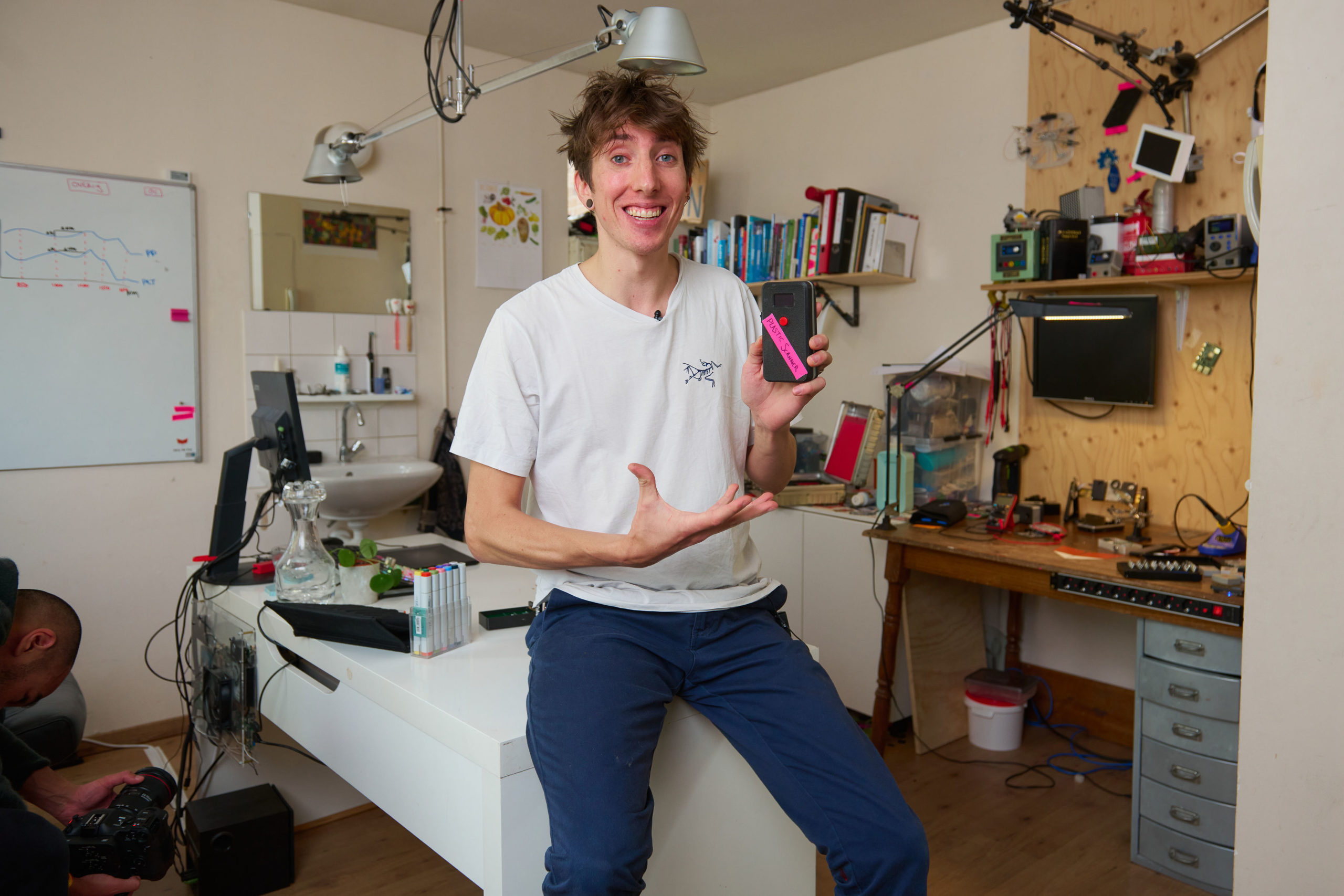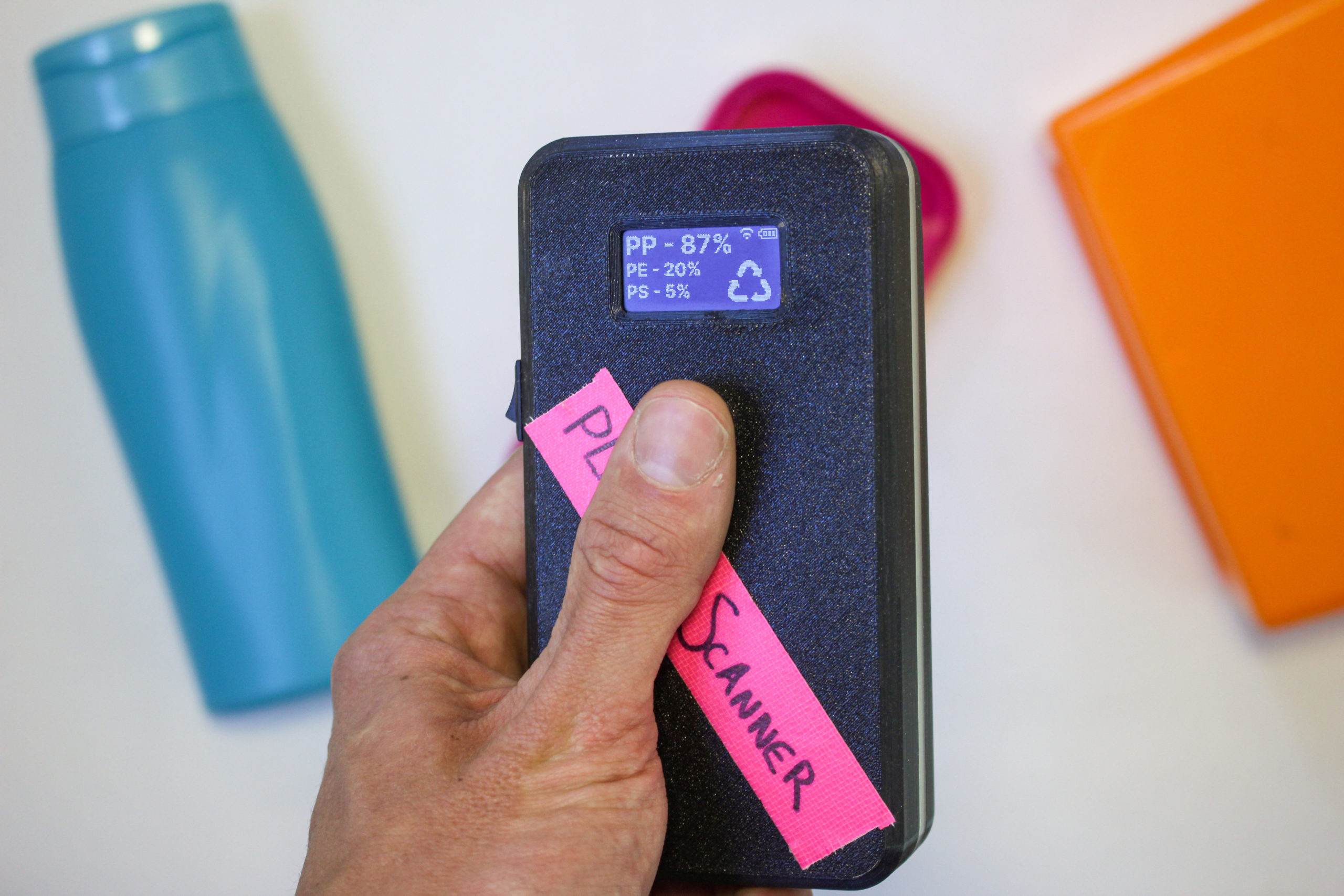As we are approaching the submission deadline for the Distributed Design Awards 2024, we wanted to put the spotlight on the big winner of last year’s Project Excellence Award with a prize of 2000 euros to further develop their project.
Do you have an innovative project yourself? If so, you could win one of the amazing prizes we have lined up this year. Find all awards categories and prizes here. The deadline to apply to the Distributed Design Awards 2024 is July 15th.
The Project
In the face of the plastic waste crisis, the Plastic Scanner project emerges as a bottom-up solution, empowering small-scale recyclers with a handheld device that accurately identifies multiple types of plastic. This tool helps the plastic waste management landscape by eliminating the need for manual sorting, a time-consuming and error-prone process that hinders effective recycling. With on-the-spot identification from the scanner, waste pickers can confidently sort plastic waste with precision, maximizing recycling rates and minimizing plastic pollution.
The open-source design of the scanner fosters widespread adoption and affordability, empowering waste pickers worldwide to play a pivotal role in shaping a more sustainable future. With the Plastic Scanner, small-scale recyclers become active participants in the circular economy, transforming plastic waste from a burden into a valuable resource. This project wants to set an example of a fun and innovation project while still solving big societal issues together.

Winning the Project Excellence Award
Read what Jerry said about the outcome of winning the award: ‘Winning the Distributed Design Award was amazing. It gave the project a big boost and helped to stay focussed on the end goal. The prize helped to delve deeper into a specific aspect of the project and to free up time for this. developing a general plastic scanner is very difficult because there are just so many different types of plastic around the world (more than 1000!) and so many different contexts and environments where it can be used that it is difficult to make one that works everywhere and works always, that is why for now I made the scope of the project smaller and first started with just identifying plastics in the laser cutting context, where the plastics are clean, flat and only within a small group of plastics, this makes it easier to iterate, it makes the goal reachable and it allows for expansion afterward ultimately working towards the goal of have a single plastic scanner for all situations. The money made it possible to step up the game in terms of prototyping, simple FDM 3d prints were upgraded to resin prints, quality samples were acquired to grow the dataset and a workspace was shared with Biosphere Solar to create a shared learning space as well as place to share thoughts and tools.’

Meet the person behind the project
Jerry de Vos, an industrial engineer by education, is dedicated to finding innovative solutions for both small and large-scale problems. This pursuit has evolved into a focus on two key themes: plastics and open-source hardware.
Get Involved
Eager to learn more or jump on board the Plastic Scanner train? Swing by PlasticScanner.com to stay updated on their progress and explore opportunities to get involved.
